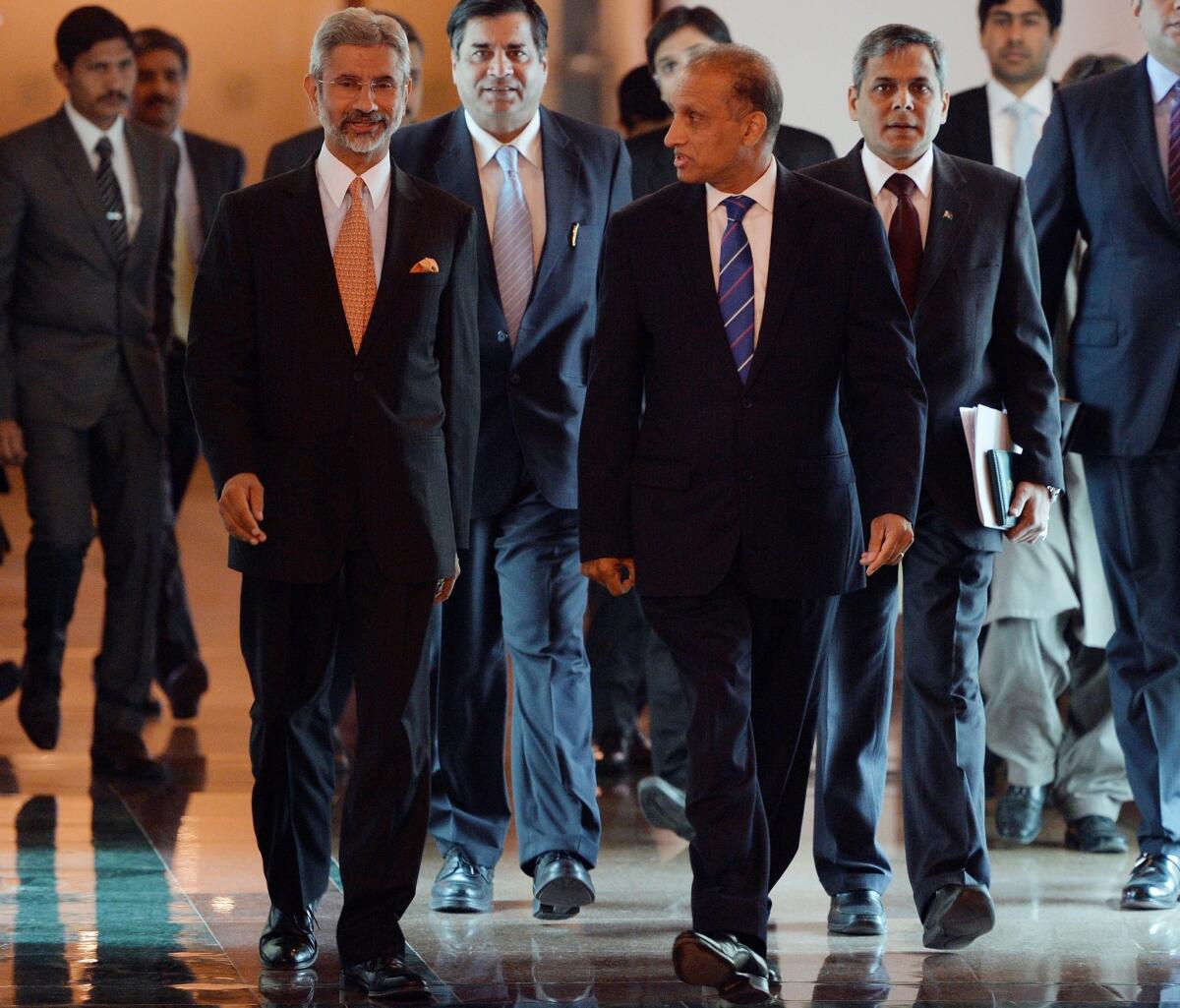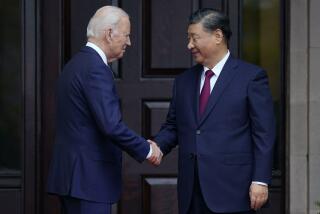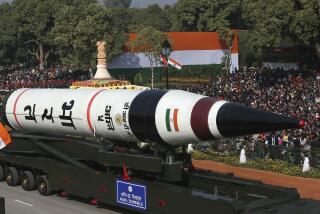India and Pakistan seek to break diplomatic ice

India’s top diplomat was in Pakistan on Tuesday for meetings that both sides described as a first step toward resuming talks on nuclear security, terrorism and a wide range of disputes between the archrival nations.
Foreign Secretary Subrahmanyam Jaishankar and his Pakistani counterpart, Aizaz Ahmad Chaudhry, failed to agree on a date to restart the talks, saying only that the two sides “would reflect on these issues,” Chaudhry told reporters.
“We engaged on each other’s concerns and interests in an open manner. We agreed to work together to find common ground and narrow differences,” said Jaishankar, who until January served as the Indian ambassador to Washington.
It was the first high-level diplomatic engagement between the two nuclear-armed rivals since India abruptly canceled talks last summer in protest of a meeting between a senior Pakistani official and a Kashmiri separatist group.
Relations between the two countries deteriorated further after that, with each accusing the other of unprovoked firing by armies positioned on either side of their disputed border. The attacks, most recently in January, left at least a dozen people dead and prompted thousands of civilians to flee their homes.
Indian officials accuse Pakistani forces of violating the cease-fire more than 685 times in the last eight months, claiming 24 lives, while Pakistan has slammed India for “unprovoked and indiscriminate” firing that has also produced casualties.
India also criticized Pakistan after militant leader Zakiur Rehman Lakhvi, the accused mastermind of the 2008 terrorist attacks in the Indian city of Mumbai, was briefly released on bail in December. A Pakistani court last month rejected Lakhvi’s bail plea in a separate kidnapping case, forcing him back into detention, but the Mumbai case has stalled in Pakistani’s notoriously weak legal system.
Indian Prime Minister Narendra Modi, who took office 10 months ago, has launched a more assertive foreign policy and reached out to the United States, prompting worry in Pakistan over its lucrative relationship with Washington. President Obama, who visited New Delhi in January, warned Pakistan that safe havens for militants were “not acceptable” and “those behind the Mumbai terrorist attack must face justice.”
Pakistan has pledged to do more to crack down on militants operating from its tribal belt and has shown signs of putting pressure on Afghan Taliban leaders to begin peace talks with the Afghan government.
Jaishankar passed a letter from Modi to Pakistani Prime Minister Nawaz Sharif and raised concerns over alleged violations of the cease-fire along the disputed boundary, known as the Line of Control, and the trial of the Mumbai attack suspects.
“Both sides raised concerns, and this visit is an ice-breaking development,” said Pakistani foreign office spokeswoman Tasnim Alsman.
Analysts said the meetings achieved little but that both governments have indicated they want to resume a dialogue.
“There is no alternative to talks,” said Salman Zaidi, an expert on Pakistan-India relations at the Jinnah Institute, a think tank in Islamabad. “We have been here before many times, but I would call this a nonfailure rather than a success.”
Special correspondent Sahi reported from Islamabad and Times staff writer Bengali from Mumbai, India.
For more news from South Asia, follow @SBengali on Twitter
More to Read
Start your day right
Sign up for Essential California for news, features and recommendations from the L.A. Times and beyond in your inbox six days a week.
You may occasionally receive promotional content from the Los Angeles Times.






